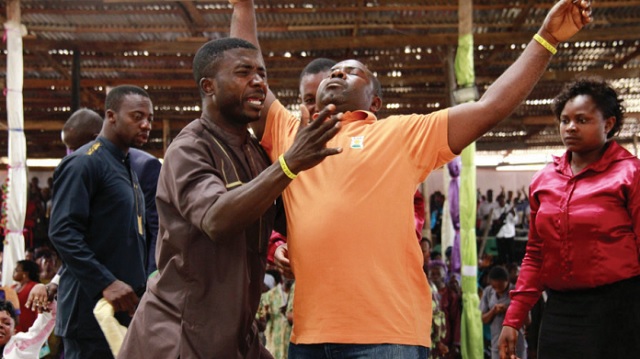
Why Rwanda closed them
Kampala, Uganda | INDEPENDENT TEAM | About 700 churches were recently closed down in Rwanda. Most of them are small Pentecostal churches. One mosque was closed too but the focus was on the churches. The closure late last February by the Rwanda Governance Board (RGB) was meant to tighten rules on registration and functioning of churches.
Most are Pentecostal churches, meaning they emphasise “baptism in the Holy Spirit, evidenced by ‘speaking in tongues’, prophecy, healing, and chasing of demons or exorcism”. Usually they are led by a charismatic preacher or a person claiming to have power to perform miracles.
According to one report, when the Rwandan President Paul Kagame first heard that more than 700 churches had been closed down by authorities in Kigali, he was taken aback.
“Seven hundred churches in Kigali? Are these boreholes that give people water?” he reportedly said, “I don’t think we have as many boreholes. Do we even have as many factories? But 700 churches, which you even had to close? This has been a mess!”
He pointed out that had there been proper planning, the situation would not have got to a level where the government has to close churches.
According to Kagame, such a big number of churches is suitable in bigger and developed economies that have the means and systems to sustain them.
“Rwanda has not reached a level where it needs all these churches,” he said.
“The second scenario is that you will find such a mess [of churches] in societies which have nothing like ours for different reasons. In Rwanda and Africa, there are those who want to see us in such chaos. When authorities intervene and stop them, they lament that it is a human rights abuse. People should have a right to worship in whatever church, they say,” said Kagame.
A joint operation of local government authorities and the Rwanda Governance Board (RGB) which oversees the registration and operations of churches saw the closure of 714 churches in Kigali.
Kigali’s three districts reportedly have 1,351 registered churches and an estimated 100 unregistered ones. Kicukiro, another district has 352 registered churches, Gasabo 699 and Nyarugenge has 300.
RGB has also drafted a new legal framework to guide the operations of faith-based organisations to help weed out unscrupulous activities among religious groups.
It is reported that incidents of police being called to intervene in wrangles over noise pollution from the churches have been on the increase. Residents unable to bear living close to the noisy churches have demanded they install sound-proof systems. But the churches have not acted. Instead, many of the churches continue to operate in rickety shelters, including tents.
According to the Rwanda Governance Board, the decision to implement the regulations required of churches was in the interest of the Rwandan people.
“It is about honouring God. It means that if we are Christians where we worship must meet standards showing respect for God. Standards that reflect the importance of God in our lives,” Anastase Shyaka the Chief Executive of RGB told The New Times newspaper.
He added that the move also aimed at dignifying worshipers as well as ensuring that worshiping is conducted in decent places without inconveniencing others.
But religious and rights groups protested; claiming that RGB’s actions amount to infringement on the right to worship.
Shyaka said the process to close down the churches was done in consultation with local religious leaders and their members.
“We believe in collaboration and we would not like the exercise to be misunderstood as Rwanda’s attempt to infringe on freedom to worship. We are doing it in total transparency together with local faith-based organization leaders, local governments,” he reportedly said.
“It should be free of any critics regarding the government’s commitment to what is enshrined in the constitution regarding freedom of worship. We very much respect the freedom to worship but we would like it exercised within the law,” he added.
 The Independent Uganda: You get the Truth we Pay the Price
The Independent Uganda: You get the Truth we Pay the Price





